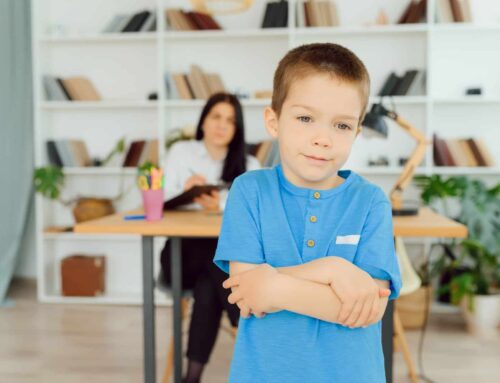
When youth and adolescents experience trauma, how can parents, emergency service workers, and rescue providers, along with the larger community help them start to recover and ultimately overcome the traumatic experience?
Whether it be suffering through a natural disaster, being a victim or witness to violence, or perhaps a tragic accident, be it large scale or small, there is more than the trauma of witnessing or suffering from physical injury, there is the psychological trauma associated with the event. The psychological trauma may occur immediately or there could be a delayed response, and the response can also have a wide range in severity as well.
Trauma responses can be different depending on the age of the child experiencing them. Children 5 years old or younger may cry, have tantrums, complain of headaches or tummy aches, or might revert back to wetting the bed, as a few examples. Older children may have trouble at school, self-isolate, develop irrational fears, and/or lose interest in activities that they once found to be fun. There may be other responses as well. Many times younger children may work the traumatic event into an imaginary scenario they play out, while older children may have feelings of guilt, replay the event, or have feelings of wanting revenge.
Many of these are normal responses that can be expected and will lessen over time. However, if these responses last for over a month, consult with a mental health professional. And of course, if anyone is in a crisis and needs immediate help, dial 911.
How Parents Can Help Young Children and Teens
It’s important for parents to acknowledge their own feelings and emotions after a trauma, as this can help them help their children. It’s important to explain to children what happened, that you love them, that it’s perfectly normal and ok for them to be upset. They need to know the traumatic event was not their fault, and that you will do your best to care for them. It’s a good idea to limit the exposure to media coverage of the event, especially as young children may not understand that it’s not a replay of a single event. Do what you can to be sure your children are getting enough sleep. If possible, keeping the usual routines the same as much as possible can be a source of comfort- bedtime stories, family meals, game night-whatever these were before the event. It may be necessary in some cases to establish new routines. Sometimes the thought of home having security cameras and/or an alarm system can help with greater peace of mind.
How Rescue Providers Can Help
Rescue workers can help families reunite, as well as assisting people in need of immediate medical help or mental health services. Remaining with your people suffering from distress can provide a source of comfort. Clear, calm communication that is firm but friendly to direct people towards safety, while protecting them from additional sources of trauma as needed- including onlookers and media, can be of great assistance.
How Community Members Can Help After a Traumatic Event
After the disaster or traumatic event, oftentimes there are steps one can take to help adult parents to further enable them to care and provide for their children. A big part of this is offering to help the parents create a safe condition while remaining calm and approachable and respecting their decisions. For example, you can help them find food & shelter, connect with other family, get medical attention as needed.
Helping when and where you can as needed can make a big impact in the coping with and the recovery of young people who have suffered a traumatic experience.
Existing Patients and New Patients, Call us to schedule an appointment, get a prescription refill or just to ask a question:
New Patients ONLY - Want to contact us through a form? CLICK HERE to fill out our contact form.




